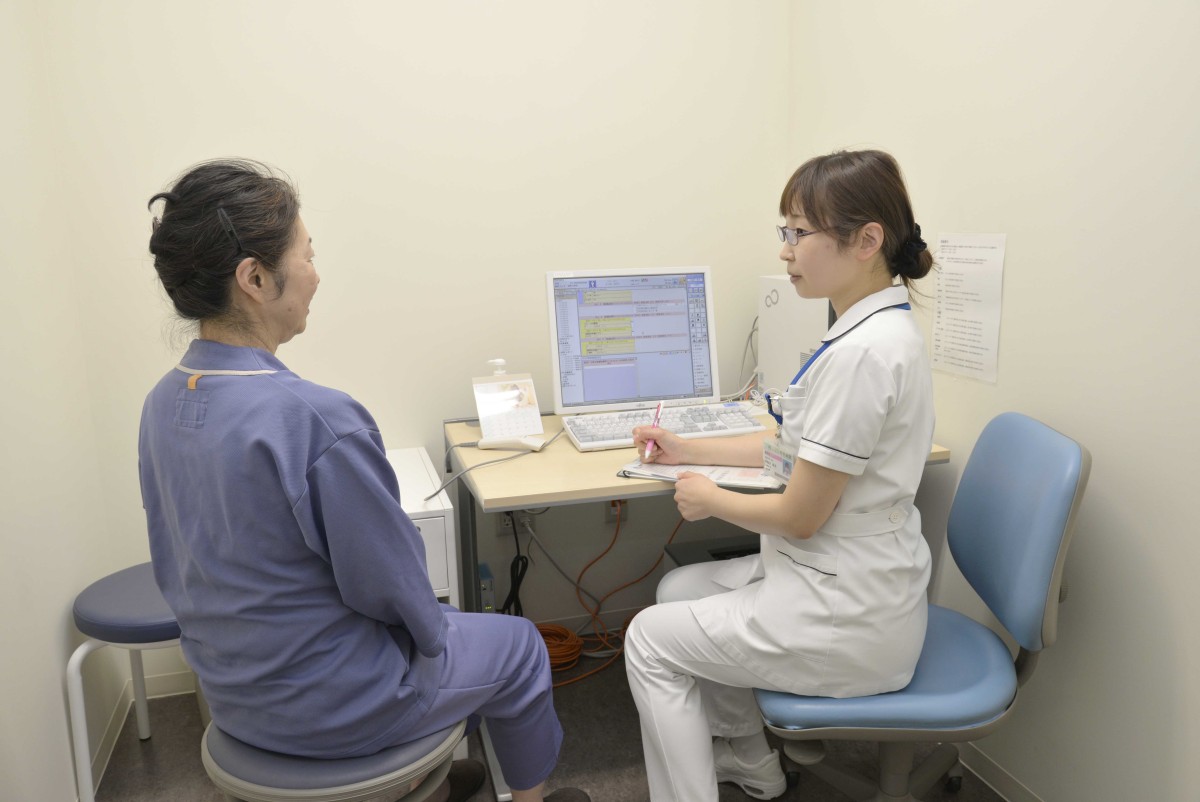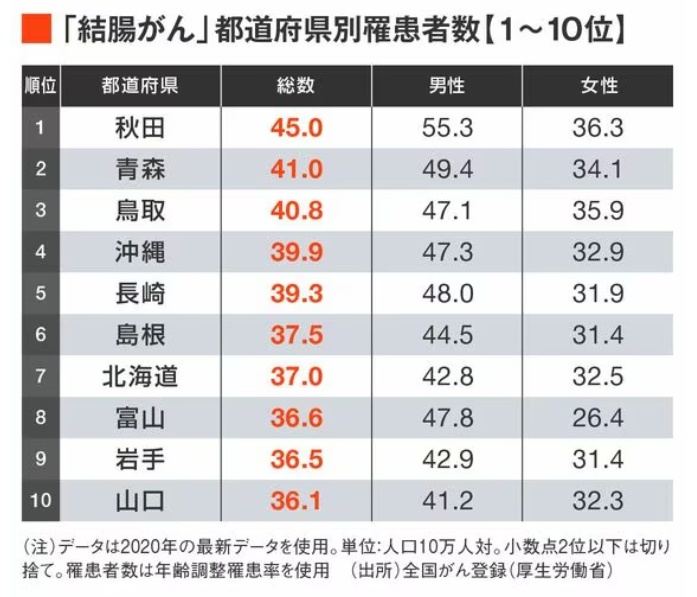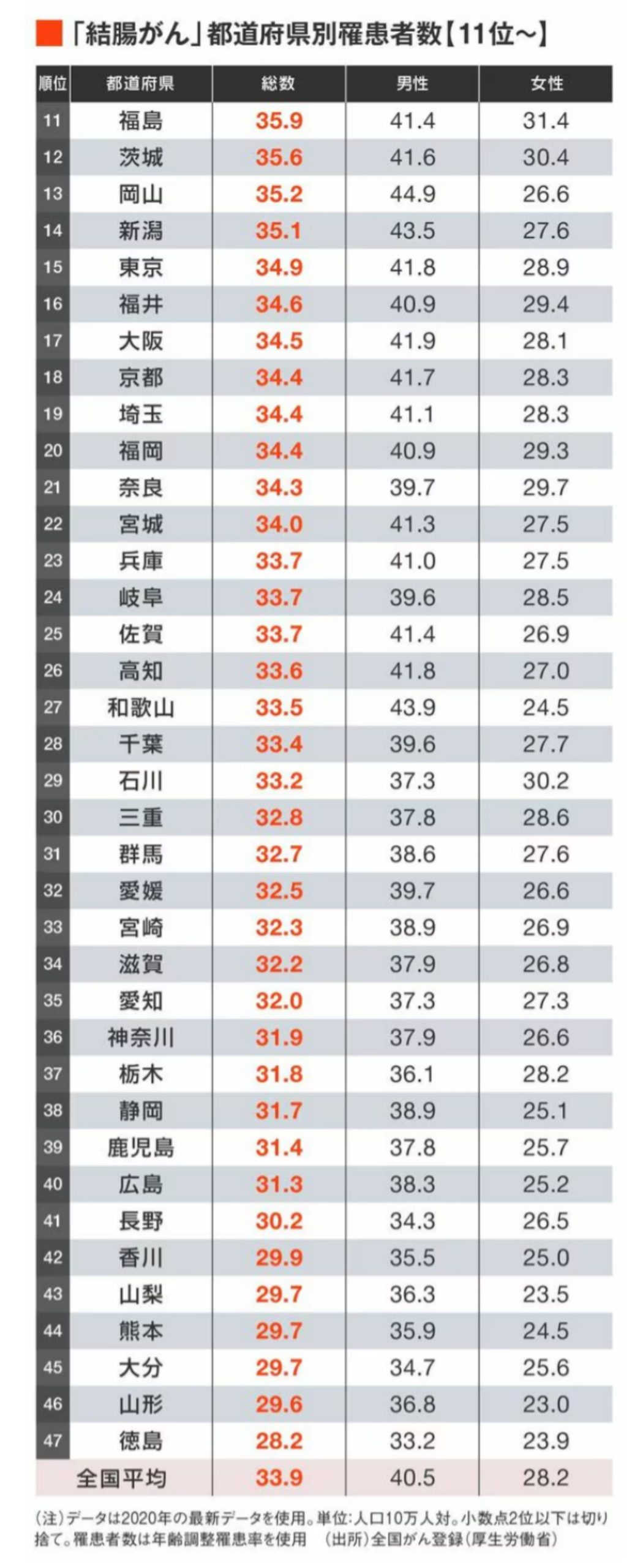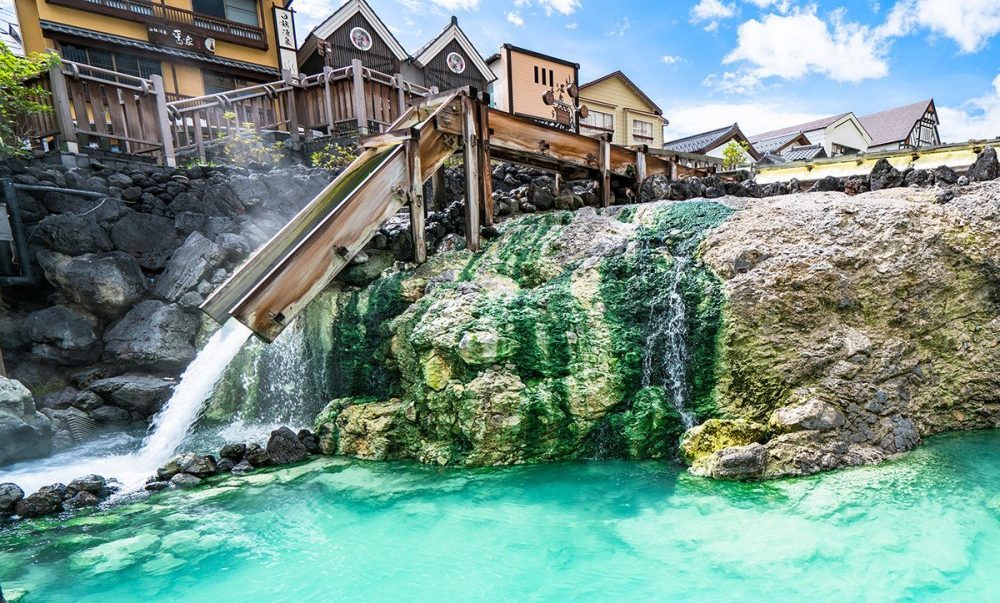Colorectal cancer has been on the rise since the 1970s, making it the most common and deadliest cancer among the Japanese population.
In the latest data, the combined number of colorectal cancer cases among Japanese men and women ranks first, while the number of deaths ranks second. However, there are regional differences, with certain prefectures appearing to have a higher susceptibility to this disease.

Regions with the Highest Incidence of Colorectal Cancer
In this article, we have created a ranking based on the number of individuals affected by colorectal cancer (colon cancer) in descending order, according to the "2020 National Cancer Registry" released by Japan's Ministry of Health, Labor, and Welfare on March 22nd.
As age increases, cancer becomes more prevalent, leading to a higher number of cancer patients in areas with a larger elderly population.
The ranking presented here uses age-adjusted incidence rates (per 100,000 people), allowing for accurate comparisons even across regions with different age compositions, such as rural and urban areas.

Top-ranking prefectures include Akita and Aomori, with Hokkaido and Iwate, among other snow-rich areas, making it to the top ten. This trend remains consistent with previous statistics from 2019. These regions exhibit high rates of alcohol consumption and smoking, as well as a lack of physical activity and high obesity rates.
Although not explicitly mentioned in the ranking, Aomori and Iwate also have among the highest mortality rates, ranking in the top five.
Ranking of Alcohol Beverage Expenditure
According to the "Household Survey (Households of Two or More People)" (2020) released by the Ministry of Internal Affairs and Communications Statistics Bureau, Niigata City ranks first in alcohol consumption expenditure among prefectural cities (65,012 yen), followed by Aomori City at second place (64,525 yen), Morioka City at third place (61,170 yen), Hiroshima City at fourth place (57,705 yen), and Akita City at fifth place (57,363 yen).
Recent studies indicate that certain risk factors for colorectal cancer include "excessive alcohol consumption," "smoking," "obesity," "excessive height," and "lack of exercise." Diabetes and excessive intake of processed meat and red meat among women may also pose risks.
Ranking of Colorectal Cancer Patients 11-47

In snow-rich regions like Northeast Japan and Hokkaido, the lack of exercise during the winter snow season is also a concern. Particularly, elderly individuals often find outdoor exercise challenging, while the younger generation (many of whom use cars as a mode of transportation) are less likely to engage in regular physical activity.
Tomohiro Matsuda from the National Cancer Center Research Institute in Japan pointed out that going to the hospital during snowy seasons is difficult, and there are differences in access due to inconvenient public transportation. This may lead to "delays in diagnosis and treatment, potentially resulting in increased mortality."
Like many cancers, colorectal cancer shows no symptoms in the early stages. Therefore, it is recommended that men and women aged 40 and above undergo fecal occult blood testing for colorectal cancer screening. For those at high risk due to family history or medical history, early testing is advised.
For Early-Stage Cancer, Over 90% Five-Year Survival Rate

Treatment includes surgery and medication, but early detection is crucial. For early-stage colorectal cancer, the five-year survival rate exceeds 90%.
Aomori Prefecture has the highest cancer incidence rate in Japan. The Aomori Prefecture Cancer and Lifestyle Disease Countermeasure Course has planned future measures for this, stating, "Starting from 2024, we will begin subsidizing the costs of detailed cancer examinations conducted by municipalities." Their aim is to increase thorough examination rates by making initial visits almost free, thereby reducing mortality rates.
"Just because one prefecture has a high cancer incidence rate doesn't mean you'll get cancer if you move there. It's important to understand the reasons why you are more susceptible to cancer and avoid it in your lifestyle," Mr. Matsuda said. "Accurate information may be the key to protecting your health and reducing cancer risk."





